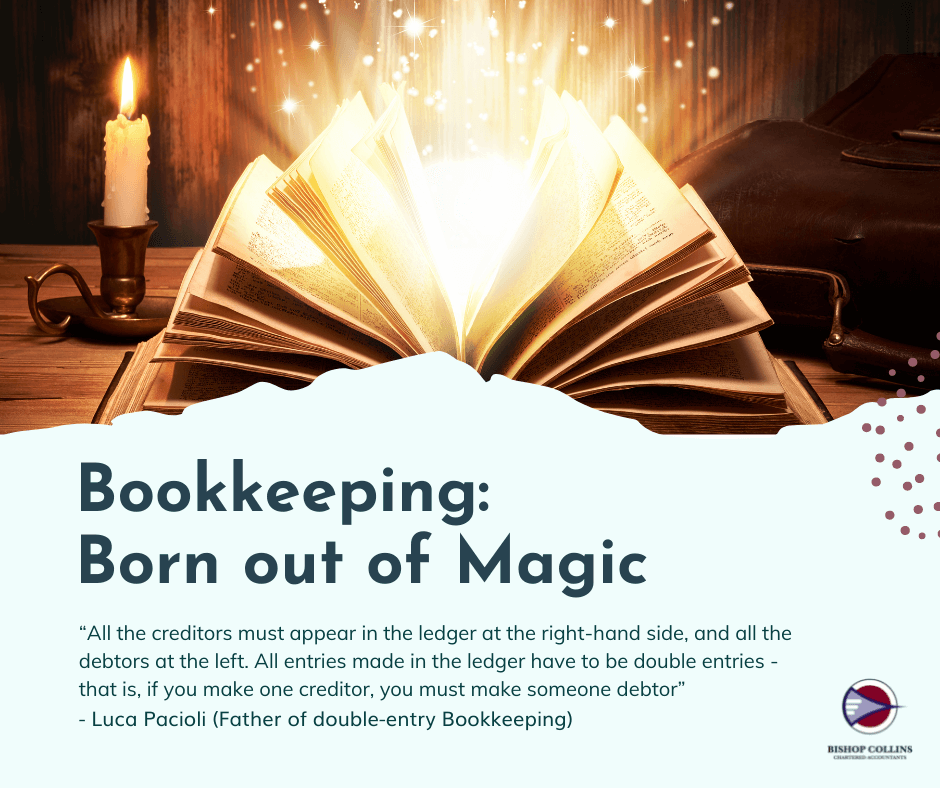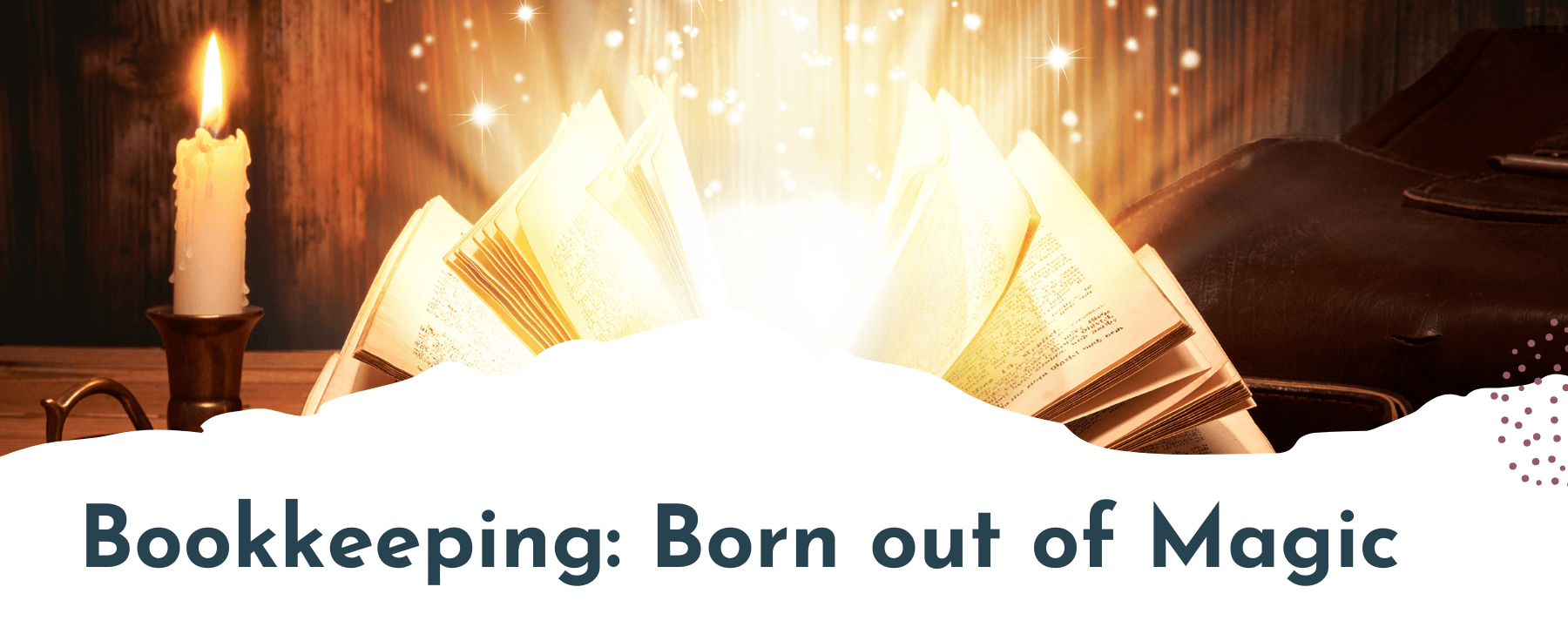Bookkeeping, what’s the fuss?
Luca Pacioli was an Italian Franciscan monk, mathematician, collaborator with da Vinci and reportedly a Magician. He is said to be the father of double-entry bookkeeping. During his travels through Venice, he discovered this new method of accounting being adopted by the merchants to record their daily transactions. The merchants of Venice would record every transaction during the day in their financial records twice.
In 1494, he wrote a comprehensive mathematics encyclopedia that contained an instructional section on how to use double-entry bookkeeping. As a result of the recently invented Gothenburg printing press, this book was widely distributed and became a best seller!
It is rumoured Pacioli and da Vinci were lovers, and Pacioli was present when da Vinci painted The Last Supper. With a pedigree such as this, no wonder double-entry bookkeeping is now used by every business in every country in the world.
Why should I use a bookkeeper?
The research suggests one of the key reasons small to medium family businesses fail is the lack of good accounting records. Without timely and accurate accounting records, it is impossible to make informed decisions about your business.
Bookkeeping is the cornerstone of your accounting records and, therefore, a critical one. Poor bookkeeping will lead to poor accounting records, leading to poor decision-making for your business.
This is because all the following critical areas of business rely on timely and accurate bookkeeping. If your bookkeeping is poor, you will not obtain the following benefits of accurate bookkeeping.
Budgeting and Decision making
Having accurate accounting records to prepare a budget or forecast then comparing your business’s actual results to the budget provides critical information on how to steer your business and improve the bottom line. You wouldn’t drive your car down the highway with your eyes closed!
Furthermore, it provides you peace of mind as a small business owner when you see your business is tracking to budget. You cannot put a price on this, knowing you are making the right decisions and your business will have the adequate cash flow to meet the needs of the business plus your personal cash flow needs.
In volatile times as we are experiencing, accurate accounting records will allow you to make immediate decisions that suit the current market conditions. For example, cash flow challenges move to the foreground in volatile markets. In response, you may wish to offer your customers a discount for upfront or early payment to ensure your cash flow remains strong. However, it’s challenging to make such a decision without knowing your accounting numbers, as you will not know your current profit margins and how such a decision may impact your business in the long term.
Accurate financial reporting
Accurate reporting is critical for numerous reasons in business. One of the more important ones is in the application for finance. Following on from the Banking Royal Commission, we see lenders applying a conservative approach to a “suitable loan”. Without accurate and reliable accounting records, it will prove extremely difficult for your business to obtain finance, and most likely, at the time it needs it the most. Then once you have the finance, the bank will most likely require your accounts for an annual review or covenant compliance. If you cannot provide these to the bank, it’s most likely that the fine print will allow them to change the loan terms or, worse, require you to repay the loan.
Compliance
Your accounting records form the basis of your taxation-related reporting, including income tax, payroll tax, and GST. If your affairs are reviewed or audited, you must have complete and accurate books and records to support any declaration you have made to the Federal or State Governments. You may expose your business to significant interest and penalties without these records. Overall, the ATO’s audit approach is one of risk assessment. If the ATO can see your business has a well-implemented and maintained accounting “process, ” they will less likely undertake further investigation into your business affairs.
The ATO continues to focus on small business claims, particularly BAS lodgements, including GST claims and employer obligations for PAYG and superannuation guarantee. In addition to this, the ATO is now focusing on Job Keeper claims. Additionally, at a state level, payroll tax continues to be a significant focus for audit activity.
If you are trading as a company, the Corporations Law requires you to keep accurate books and records. Also, if you are an entity that requires an annual external audit, accurate accounting records are the key to receiving a “clean” report from your auditor.
Succession planning
We have supported many clients to ready their business for sale over the years. This may be an external trade sale or an internal sale to employees. One of the most significant risks to obtaining the best price for your business when selling is poor accounting records. When you are negotiating a sale with a potential buyer, and you cannot present a “strong set of number numbers”> for your business, you will lose credibility and thus the position of power in the negotiation. In addition, weak accounting records will be shown up in any due diligence and used against you at the negotiating table. This is not a position you want to be in when you are selling your life’s work just because you have not maintained appropriate records.
We understand that keeping up to date with your bookkeeping, accounts and payroll can be difficult to manage when you’re busy running a business. Our expert advisory team offer a range of services to streamline your accounting transactions this includes Computerised Accounting Assistance, Monthly Bookkeeping, Payroll, Business Activity Statement (BAS) Preparation, Cloud Accounting, Feasibility, & Implementation, as well as Financial Reporting. Get in touch with us below to find out how we can assist your business’ bookkeeping needs.





